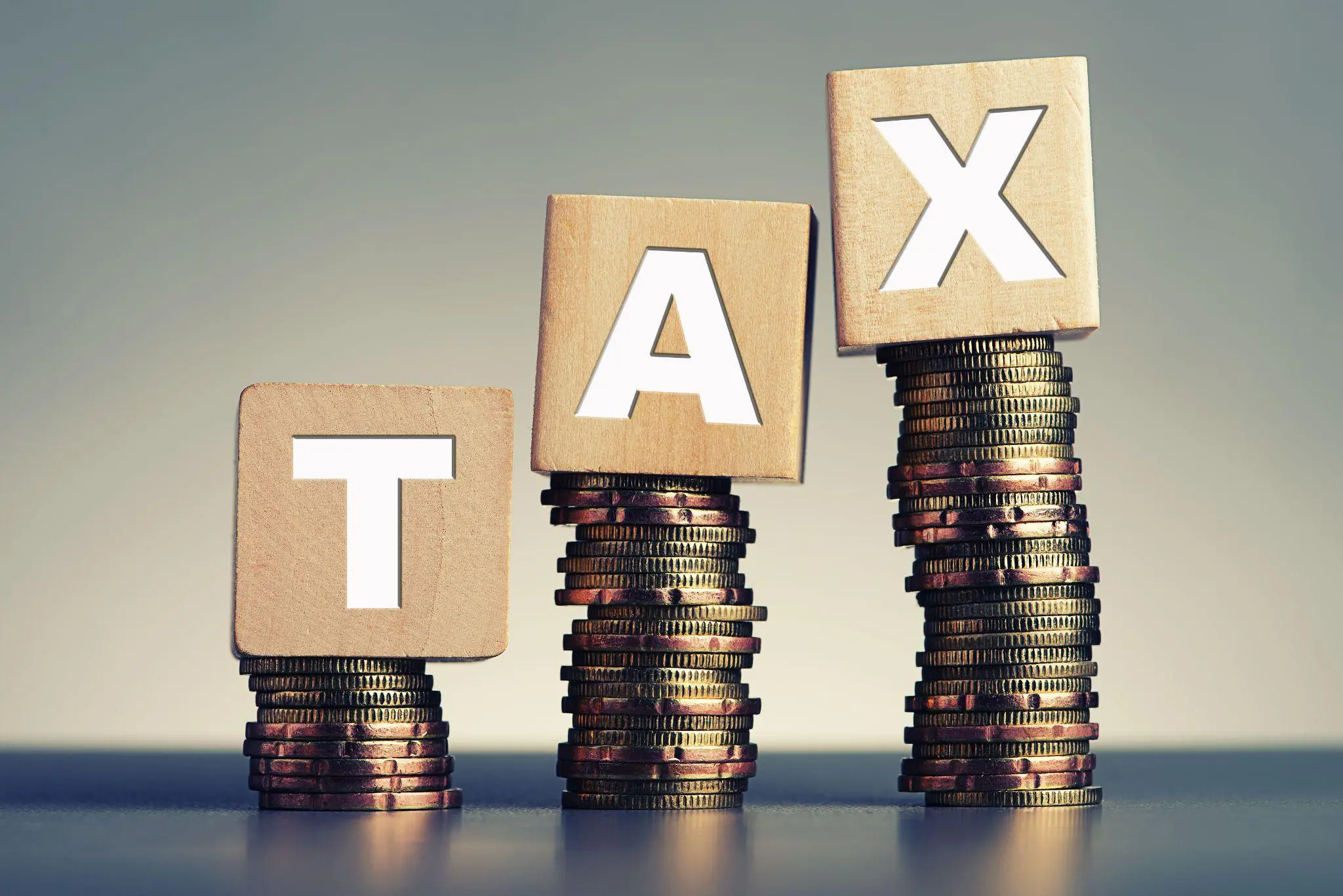What is Capital Gains Tax? Its Types and Computation
Written by
Reviewed by
Sahil Rawal
BFSI Expert
Sahil Rawal is a digital & brand management specialist with over 10 years of experience in Financial Services Industry. Life insurance professional with expertise in digital marketing strategy, website content marketing and brand communication designed to increase brand awareness, drive engagement & sales.
What are Capital Assets and Capital Gains?
As per the Income Tax Act, a capital asset can be any type of property held by an individual like buildings, land, jewellery, equity shares, mutual funds, etc. Profits can be earned by investors upon selling any type of capital asset for a price higher than the purchase amount. Such profits earned from sale of a capital asset are termed as capital gains.
Alternatively, there can be a situation of capital loss as well when it comes to various investments. As the same suggests, a capital loss is the opposite of capital gain and it happens when the selling price of the capital asset is lower than its purchase price.
You should also keep in mind that there are two types of capital gains:
What is the Definition of Capital Gains Tax?
Since capital gains are categorized as income, it falls under the ambit of taxable income. So, the tax levied on capital gains is known as capital gain tax. Simply searching what the capital gain tax rate is will not be enough if you wish to have a deeper understanding of the concept.
As per existing rules, capital gains tax rate differs based on two key factors: the investment tenure and the type of capital asset that is being sold at a profit. In the following sections we will discuss the concept of Short term and Long term capital gains as well as the different capital gains tax rates in India for different types of capital assets.

Types of Capital Gains Tax
As discussed above, the tax approach changes regarding long-term and short-term gains, and this leads us to the two types of capital gains tax that you need to consider:
Long-term Capital Gain Tax: In the case of most capital assets, if the asset has been owned for over 36 months is termed a long-term asset. The profit incurred on the sale of such an investment will be called long-term capital gain (LTCG). And the tax levied on it is your answer to what long-term capital gains tax is. This investment period is shorter in the case of some capital assets like listed equity shares and equity that qualify for LTCG after investment period and immovable property that qualify for LTCG after 24 months.
Short-term Capital Gain Tax: To know what short-term capital gain tax is, you will need to understand the idea of short-term capital gain. In the case of many capital assets/investment, if one stays invested for less than 36 months prior to sale, these assets qualify for short-term capital gains. Such gains are taxed as per short-term capital gains tax rules.
In the case of an immobile property, the duration that will make for a short-term capital asset has been kept at 24 months, while the same for listed equity shares and equity mutual funds is 12 months. The tax rate and approach will change whenever there is a change in the asset type. If you are wondering what percentage the capital gains tax is, first, know that the rate at which the capital gains tax is levied changes with the asset type.
What are the Assets on Which Capital Gains Tax is Applicable?
When assessing what the capital gain tax rate is, it’s vital to know the assets on which the tax type will be applicable. Here is the list of assets that qualify as capital gain assets:
- Jewellery
- Stocks
- Property
- Bonds
- Household furnishings
- Timber
- Cryptocurrency
- Vehicles
- Collectables
- Work of Fine Art
Additionally, when we discuss what the capital gains tax rate is, it’s important to know the asset types that are not eligible for the capital gain asset. Here’s a list of few such assets:
- Depreciable business property
- Stocks
- Property used by investor’s business or for rent
- Business inventory
It’s also worth noting here, especially for those who want to know what the percentage of capital gains tax is, an inherited property is exempted from capital gains tax. This is because by way of a legal document, property ownership is transferred. There’s no actual selling that happens. However, capital gains tax will be levied only after a capital asset has been sold.

Short-term and Long-term Capital Gains Tax Rates
As we further understand the concept of capital gains in India, we will now learn what the long-term capital gains tax rate is and what the short-term capital gain tax rate is.
The long-term capital tax is calculated at 20% (plus surcharge and cess as applicable). But in some cases, the tax can be charged at 10% (plus surcharge and cess as applicable).
Following are the conditions under which 10% long-term capital gain tax may be applicable:
- Long-term capital gains that happen on the sale of listed securities that exceed the ₹1 lakh mark. The provision is under Section 112A of the Income Tax Act of India.
- Profits earned by selling securities listed under the recognized stock exchange of India. Tax on mutual funds that primarily invest in equities is 10% if units have been held for 1 year or more prior to redemption. Zero coupon bonds qualify under the 10% long-term capital gain tax rate regime.
Similarly, u/s 111A, short-term capital gain tax rate is 15% for asset classes like equity mutual funds, while for other asset classes like gold investments and debt mutual funds, STCG tax rate is as per the income tax slab rate of the tax payer.
Below are the capital gains tax rates for some key types of capital assets and different investment tenures
| Capital Asset | Short Term Capital Gains Tax Rate | Long Term Investment Period | Long Term Capital Gains Tax Rate |
| Listed Equity Shares and Equity Mutual Funds | 15% of capital gains | Over 12 months | 10% on annual returns exceeding Rs. 1 lakh |
| Gold | As per slab rate of the investor | Over 36 months | 20% with indexation benefit |
| Debt Mutual Funds | As per slab rate of the investor | Over 36 months | 20% with indexation benefit |
| Unlisted Equity Shares | As per slab rate of the investor | Over 36 months | 20% with indexation benefit |
As you can see, when calculating the capital gains tax in India, you have to consider both the capital asset sold as well as the period you have stayed invested for in the asset prior to the sale.

Steps to Compute Long-term Capital Gains Tax
Now that you theoretically know what long-term capital gain tax is, let us find out the steps that can help us calculate long-term capital gains tax. It can be computed in a single step using an easy formula.
This is how you can calculate long-term capital gains tax (LTCG):
LTCG = Final sale price – (indexed cost of acquisition + indexed cost incurred for improvement or alteration or renovation+ cost for making the sale)
Now, a 20% tax will be levied on it.
Here, the indexed acquisition cost is based on the inflation level of the country. And it means the purchase price of the asset. The indexed cost incurred for improvement or alteration, or renovation, also accounts for inflation and is the cost incurred to make any improvement in the asset. The cost of making the sale means the cost required to manufacture or buy a product that was later sold to a customer.
Steps to Compute Short-term Capital Gains Tax
Since you now know the LTCG and its tax calculations, you might be wondering what the short-term capital gains (STCG) tax calculation is. Read on to find out the single-step calculation:
STCG= Final sale price - (cost of acquisition + cost incurred for improvement or alteration or renovation + cost for making the sale)
Once the figure is in place, tax can be levied based on if the gains qualify under Section 111A or not. Do keep in mind that capital gains tax rates are based on the type of capital asset being transferred and your applicable income tax slab does not impact capital gains tax calculation in any way.
Exemptions on Capital Gains Tax
Now that we have given you the lowdown on what the capital gain tax rate is let us know about the tax exemptions that apply to capital gains.
Section 54: If the amount earned by selling a property is spent on buying another property, the capital gains made by transferring the ownership of the first property are exempted from tax.
Section 54F: The section will apply only when the capital gains are made from a long-term investment that is not a residential property.
Section 54EC: If long-term capital gains are invested in specific investment instruments within a six months from the date of transfer, it’s exempted from the tax deduction.
Conclusion

Now that you know what the capital gains tax rate is, it’s time to plan your finances and investments better. You may also explore options to minimize your capital gains tax liabilities. The amount saved can then be used to buy more stocks, bonds, and other profit-making investment instruments.
Frequently Asked Questions (FAQs)
Are income tax and capital gain tax the same?
What are the strategies to reduce capital gains tax?
Do NRIs pay capital gains tax?
What are age-related exemptions regarding capital gains tax?
Does the duration for which you own an asset before selling it affect the tax rate?
ARN NO: Jul23/Bg/06J
Popular Searches
- Whatsapp: 7428396005Send ‘Quick Help’ from your registered mobile number
- Phone: 0124 648 890009:30 AM to 06:30 PM
(Monday to Sunday except National Holidays) - service.helpdesk@maxlifeinsurance.comPlease write to us incase of any escalation/feedback/queries.
- Whatsapp: 7428396005Send ‘Hi’ from your registered mobile number
- 1860 120 55779:00 AM to 6:00 PM
(Monday to Saturday) - service.helpdesk@maxlifeinsurance.comPlease write to us incase of any escalation/feedback/queries.
- 011-71025900, 011-61329950(9:30 AM to 6:30 PM IST Monday to Saturday)
- nri.helpdesk@maxlifeinsurance.comPlease write to us incase of any escalation/feedback/queries.



